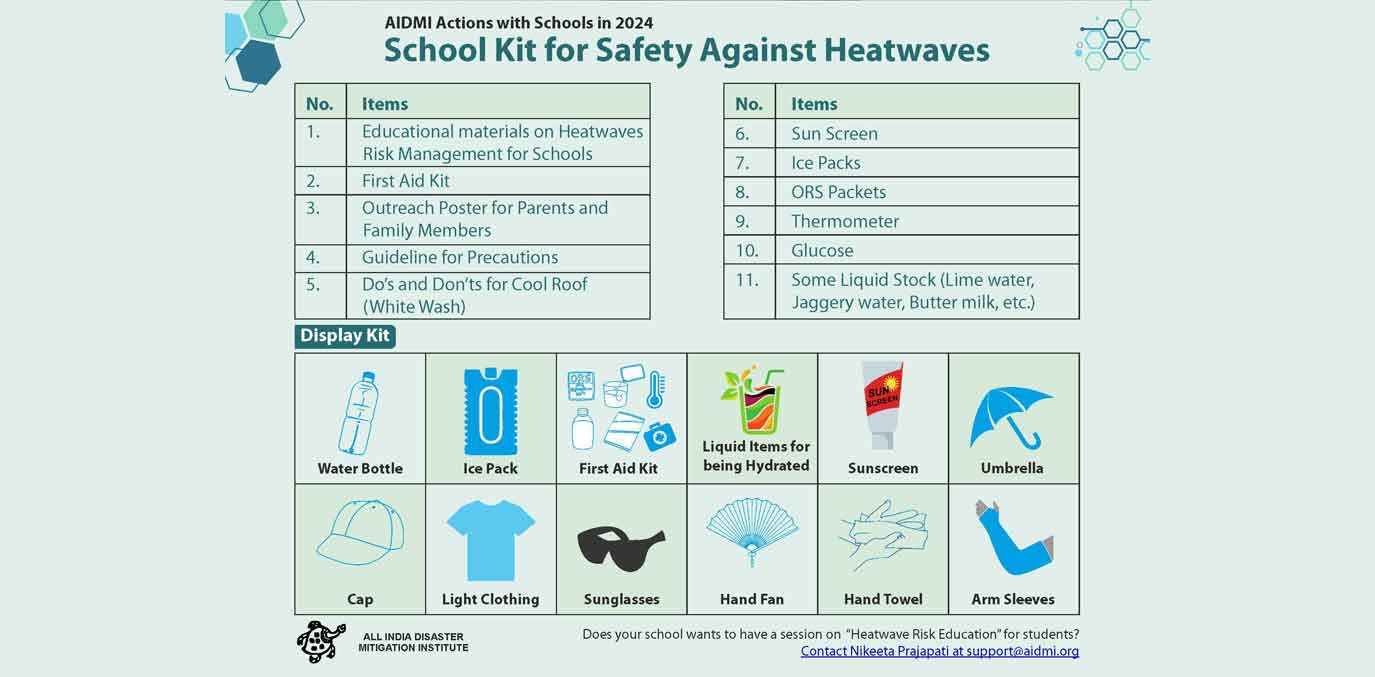By Mehul Pandya, AIDMI, India
Escalating global temperatures intensify the threat of heatwaves, notably in populous locales like India, where the National Disaster Management Authority (NDMA) warns that nearly all states are increasingly vulnerable. These scorching periods wreak havoc on agriculture and strain healthcare systems, while infrastructural wear and surging energy needs highlight the environmental strain. Averaging 2,000 annual fatalities, heatwaves disproportionately impact those without cooling resources, such as outdoor laborers and underprivileged inhabitants in substandard housing, underscoring the urgent necessity for comprehensive mitigation strategies.
Minimizing heatwave fatalities demands a detailed examination of temperature fluctuations and past occurrences to understand changing death patterns. Dedicated research on the public health outcomes of heatwaves and thorough tracking of health data is critical to identifying vulnerable areas and developing targeted safeguards. Strategies to reduce mortalities involve bolstering advanced alert systems, raising awareness among high-risk groups via public health campaigns, and implementing government initiatives—such as the Jal Jeevan Mission—to ensure water availability, which is crucial during extreme heat events.
Recent nationwide research by the All India Disaster Mitigation Institute identifies the following fundamental research and innovation needs to prevent heatwave-related deaths in India.
- Heatwave prediction and monitoring: Funding advanced research for sophisticated meteorological models can lead to precision in predicting heatwaves. This specificity enables timely alerts, which is crucial for early warning systems to function effectively.
- Effective early warning systems: Incorporate mobile technology and local broadcasting for widespread alert distribution, develop community-based alert systems, and create localized, actionable messaging to improve last-mile connectivity in early warning systems through research and innovation.
- Urban heat mitigation: By employing innovative urban designs, such as incorporating reflective materials and green roofs, cities can significantly reduce heat retention. Strategic placement of shade can also play a vital role in cooling urban areas.
- Healthcare preparedness: Crafting heatwave-specific medical protocols and training healthcare providers ensures swift recognition and treatment of heat-induced illnesses, delivering an agile healthcare response during critical heat events.
- Public awareness campaigns: Designing awareness campaigns that speak to the diverse cultural and linguistic landscape can improve public understanding of the dangers of heat waves and motivate adopting preventive behaviors.
- Water management strategies: Investigating sustainable water management, including drought-resistant sources and efficient distribution, is essential to maintaining water supply during the water-scarce periods typical of heatwaves.
- Protective labor regulations: Researching and developing labor policies that protect workers from extreme heat exposure is integral. These findings need to be translated into laws safeguarding outdoor and at-risk workers.
- Cooling centres and infrastructure: Establishing accessible public cooling centres or shelters is critical, especially for at-risk groups such as older adults and people without housing, to provide relief from extreme temperatures and prevent heat-related health issues.
Mitigating heatwave mortality in India requires multidisciplinary research and innovation, focusing on enhanced early warning systems, community resilience, and sustainable technologies to adapt effectively to the increasing threat of extreme heat events.
Disclaimer: The views expressed in this piece are those of the author/s and do not necessarily reflect the views or policies of AIDMI.
